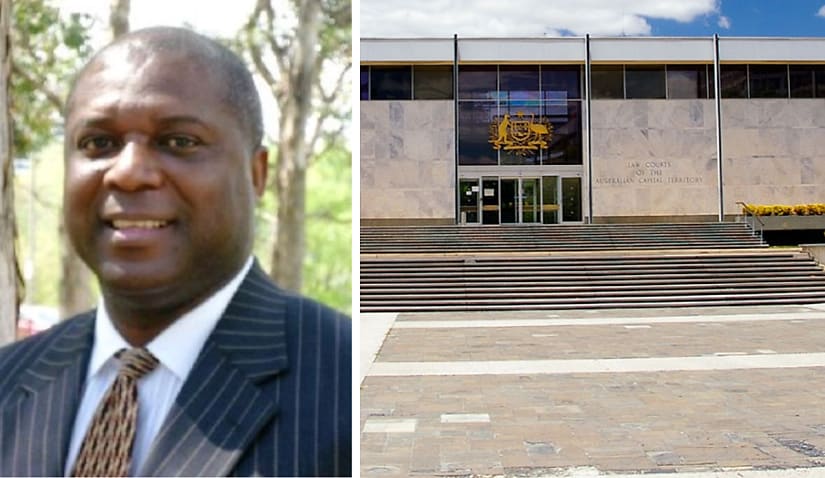Emmanuel Ezekiel-Hart, a lawyer who has brought dozens of proceedings against the ACT Law Society, was unable to convince a court to overturn an order declaring him to be a vexatious litigant.

In February 2024, Justice Greg Curtin declared Emmanuel Ezekiel-Hart to be a vexatious litigant, effectively ending the ease with which he brought proceedings against the ACT Law Society, its presidents and staff, the Commonwealth of Australia, and other agencies and bodies.
Justice Curtin noted Ezekiel-Hart had filed over 37 proceedings since March 2009, all stemming from unfounded allegations of racial discrimination, abuse of power, fraud, and human rights breaches.
The following June, Ezekiel-Hart sought relief to review Justice Curtin’s decision and orders, and relied on grounds that were found to be “sometimes expressed in scandalous or offensive terms”.
“There is nothing in the material adduced by the plaintiff in the proceeding which would suggest the declaration made by Justice Curtin is no longer required for the purposes for which it was imposed.
“In fact, the present proceedings demonstrate why the declaration should remain in force,” Justice Martin Burns recently determined.
Ezekiel-Hart’s grounds included allegations that the order was a “substantial injustice” because it was made in his absence while he was “sick”, that it deprived him of his human rights to seek redress, and had the “ulterior motive” of frustrating his right to a fair hearing.
While relief sought by Ezekiel-Hart is expressed to be leave to commence review proceedings, it was accepted by the Law Society and other defendants that no leave would be required.
Instead, the parties approached the hearing on the substantive merits of the application to review the declaration, with the significant issue being the legislative intention around the revocation of a declaration.
Justice Burns noted Ezekiel-Hart would have been aware of this but he chose to “eschew that course” in favour of new proceedings, in line with the “curious feature” of his past approach to the litigation.
Turning to Ezekiel-Hart’s allegation that the declaration impacted his human rights, Justice Burns acknowledged the order could limit his “otherwise unfettered right to commence proceedings in an appropriate court or tribunal to have his rights determined”.
“But there are others whose rights must also be considered.
“The defendants to the present application, who have been burdened by being forced to participate in earlier proceedings … without reasonable grounds or for an improper purpose should not continue to be vexed by a continuation of this conduct.
“Continued prosecution of vexatious claims is stressful to those forced to defend the claims, expensive and wasteful of scarce public resources,” Justice Burns said.
Further, Justice Burns clarified that Ezekiel-Hart could continue to defend himself in proceedings where he is the defendant.
The case: Ezekiel-Hart v The Council of the Law Society of the ACT & Or (No 8) [2025] ACTSC 394.
